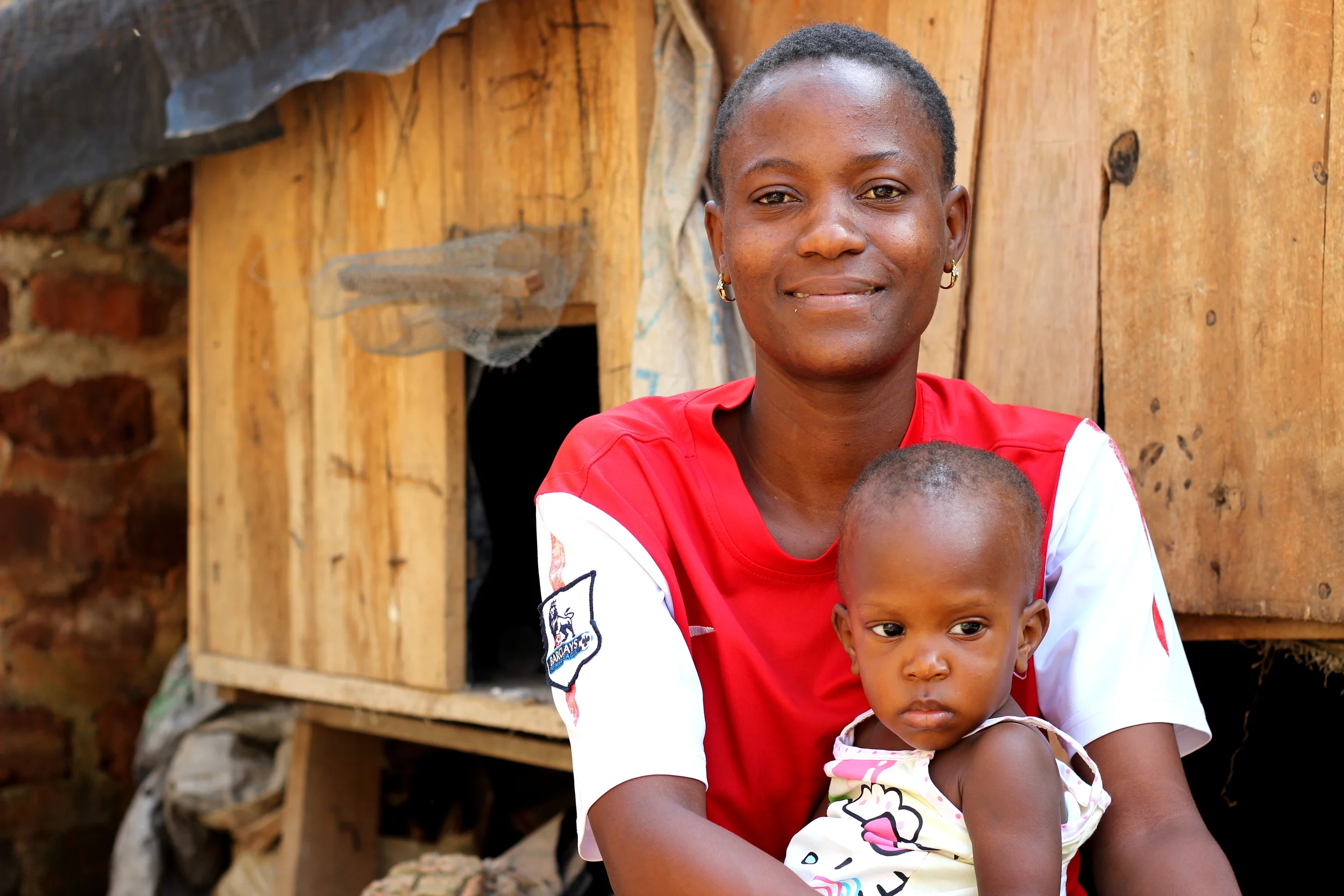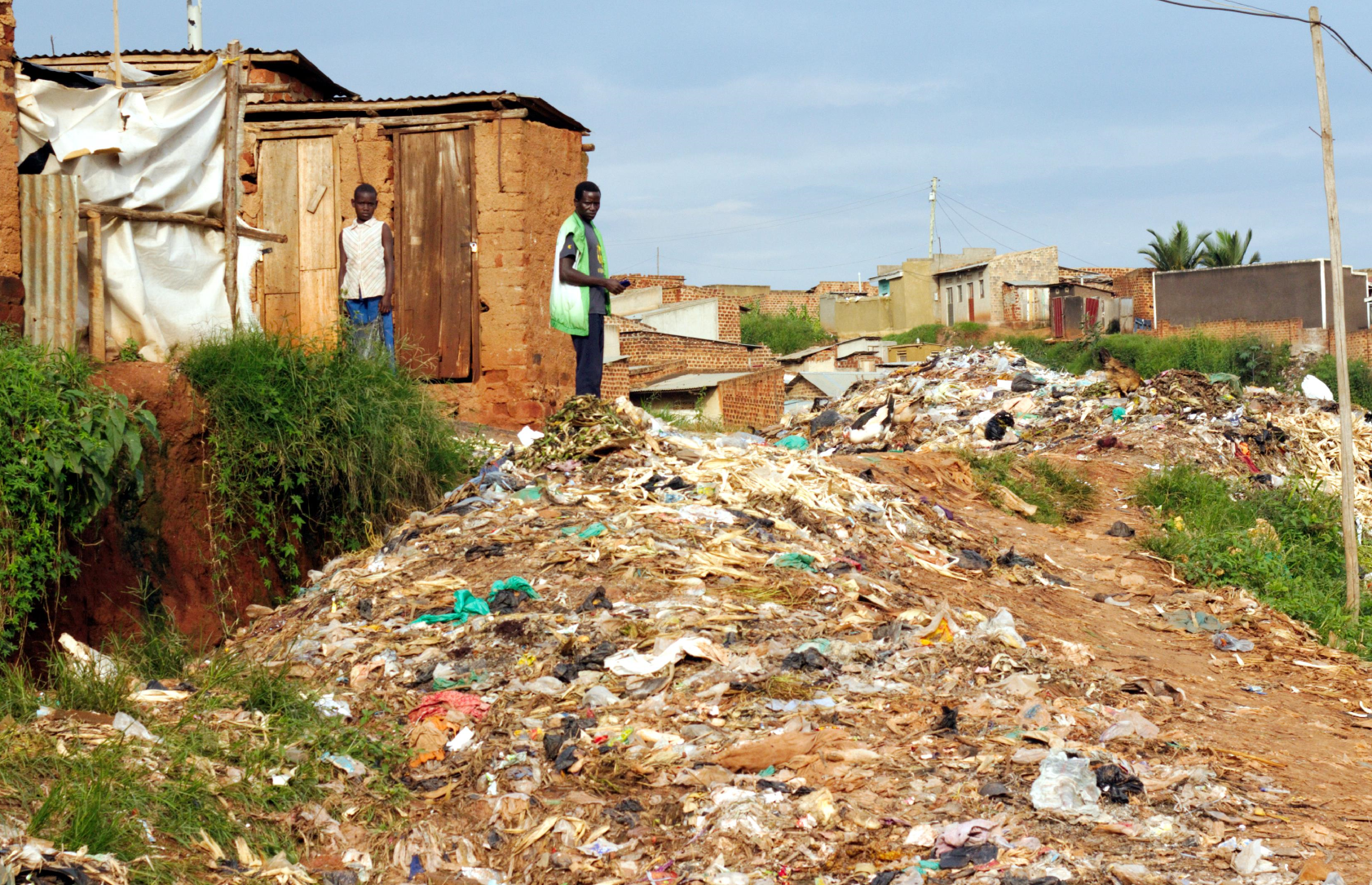East Africa is a gorgeous expanse of open savanna and lush jungle whose history, both environmental and political, has slowed its development. Tuli works in both Uganda and Kenya, where millions of people live below the poverty line and many others are poor. Basic needs, like food and shelter, are unattainable to many. Public education is not free, so children who grow up poor have little opportunity as adults, no matter the tenacity of their work ethic.
Lilian uses the money she earns from Tuli to educate her two daughters.
Acholi Quarter, an area near Kampala where many northerners settled after being displaced by Uganda’s decades-long civil war, whose effects are still felt.
Despite slow development over the last decades, poverty remains high, as does unemployment. About 42% of Kenya’s population lives below the poverty line, and about 62% of working-aged people under 30 years old are unemployed, according to a study by Action Aid International Uganda.
For many East Africans, there are few options. They'd like to work, but finding employment, especially long-term employment, is difficult. So, many of them seek to create their own futures.
Using recycled and salvaged material, many people create jewelry from tightly rolled paper beads or hand-sawed brass. By doing this, many people hope to create their own work.
There's just one problem: There are very few customers in East Africa. Many people spend hours daily creating jewelry, knowing sales will be seldom. That grit is what inspired us to start Tuli.
Tuli has access to customers. We work with talented artisans in Kampala and Nairobi to adapt their craft toward global customers and then bring the market to them.
Tuli’s artisans are able to feed their families, educate their children, and rise out of poverty. Tuli income has funded college educations, land purchases, and new business ventures.
And, unlike other fair trade brands, we don’t limit the time we work with artisans. Many brands give artisans employment for a few months or years before sending them on their way with the training to start their own jewelry businesses. The problem? Without access to a global market, many of these artisans slide back into poverty.
By purchasing a Tuli product, you are giving people a new opportunity to earn an income. You empower them to use the skills they already have to create their own future.




